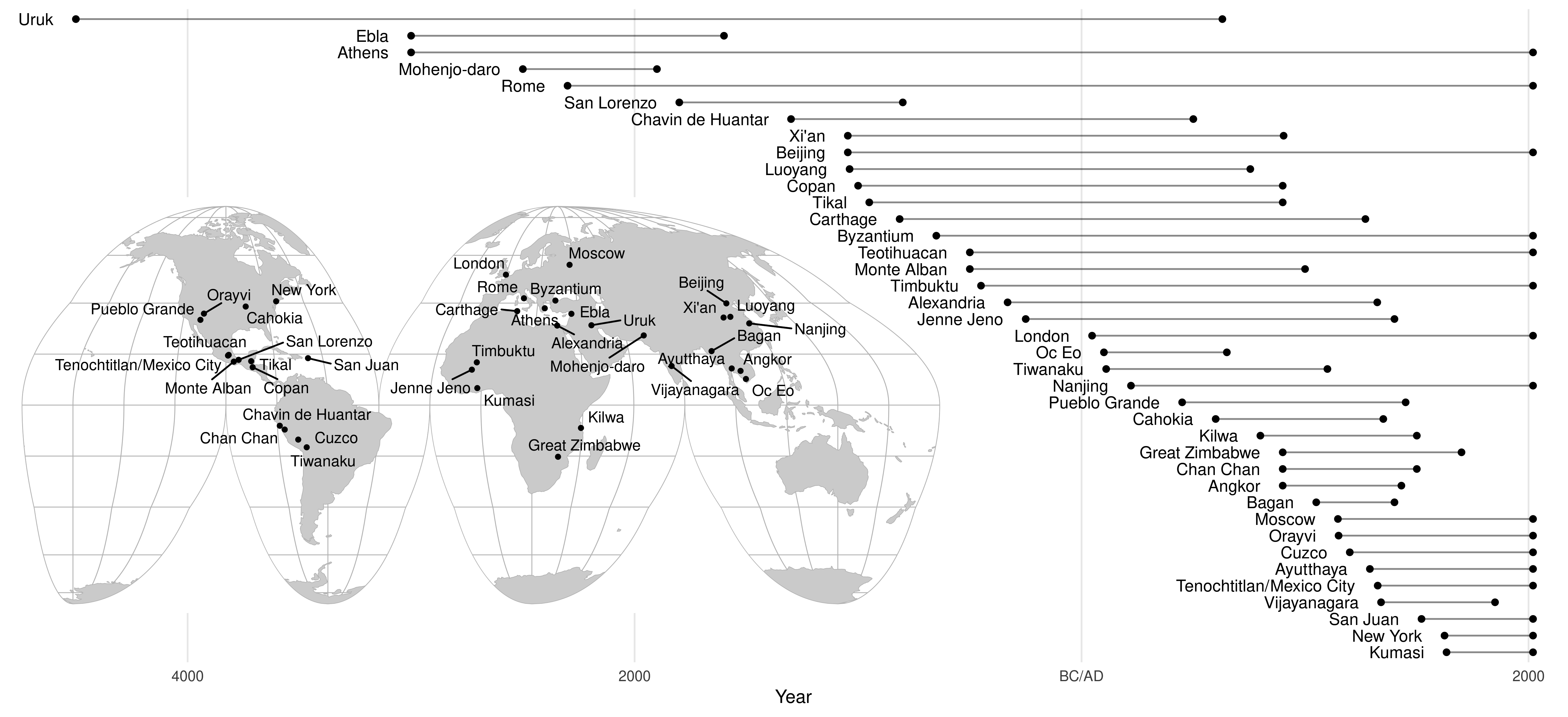
Abstract
We propose a dedicated research effort on the determinants of settlement persistence in the ancient world, with the potential to significantly advance the scientific understanding of urban sustainability today. Settlements (cities, towns, villages) are locations with two key attributes: They frame human interactions and activities in space, and they are where people dwell or live. Sustainability, in this case, focuses on the capacity of structures and functions of a settlement system (geography, demography, institutions) to provide for continuity of safe habitation. The 7,000-y-old experience of urbanism, as revealed by archaeology and history, includes many instances of settlements and settlement systems enduring, adapting to, or generating environmental, institutional, and technological changes. The field of urban sustainability lacks a firm scientific foundation for understanding the long durée, relying instead on narratives of collapse informed by limited case studies. We argue for the development of a new interdisciplinary research effort to establish scientific understanding of settlement and settlement system persistence. Such an effort would build upon the many fields that study human settlements to develop new theories and databases from the extensive documentation of ancient and premodern urban systems. A scientific foundation will generate novel insights to advance the field of urban sustainability.